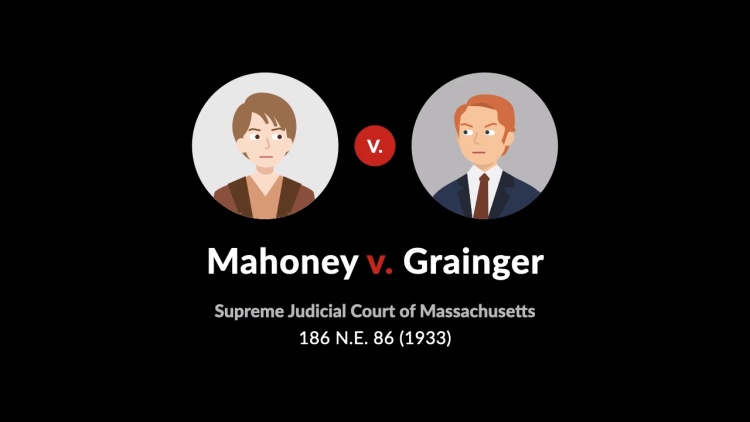Mahoney v. Grainger
Supreme Judicial Court of Massachusetts
186 N.E. 86 (1933)

- Written by Christine Raino, JD
Facts
Helen A. Sullivan, an unmarried sixty-four year old school teacher, hired an attorney 10 days before her death to draft a will for her. When he asked who she wanted to leave the residue of her estate to and who her closest relatives were, she said she had twenty-five first cousins who she wanted to share the residue equally. Her attorney drafted a will that left the residue of her estate to her “heirs at law living at the time of my decease . . . . to be divided among them equally, share and share alike.” The attorney read the will to Sullivan and she signed it. However, when Sullivan died, her sole heir at law was her maternal aunt. Some of Sullivan’s first cousins filed a petition for distribution of a legacy, which the probate court denied, holding that the language “heirs at law” was not ambiguous, and therefore testimony of Sullivan’s stated intentions could not be introduced to prove the meaning of the language used in the will. The cousins appealed to the Supreme Judicial Court of Massachusetts.
Rule of Law
Issue
Holding and Reasoning (Rugg, C.J.)
What to do next…
Here's why 907,000 law students have relied on our case briefs:
- Written by law professors and practitioners, not other law students. 47,100 briefs, keyed to 996 casebooks. Top-notch customer support.
- The right amount of information, includes the facts, issues, rule of law, holding and reasoning, and any concurrences and dissents.
- Access in your classes, works on your mobile and tablet. Massive library of related video lessons and high quality multiple-choice questions.
- Easy to use, uniform format for every case brief. Written in plain English, not in legalese. Our briefs summarize and simplify; they don’t just repeat the court’s language.





